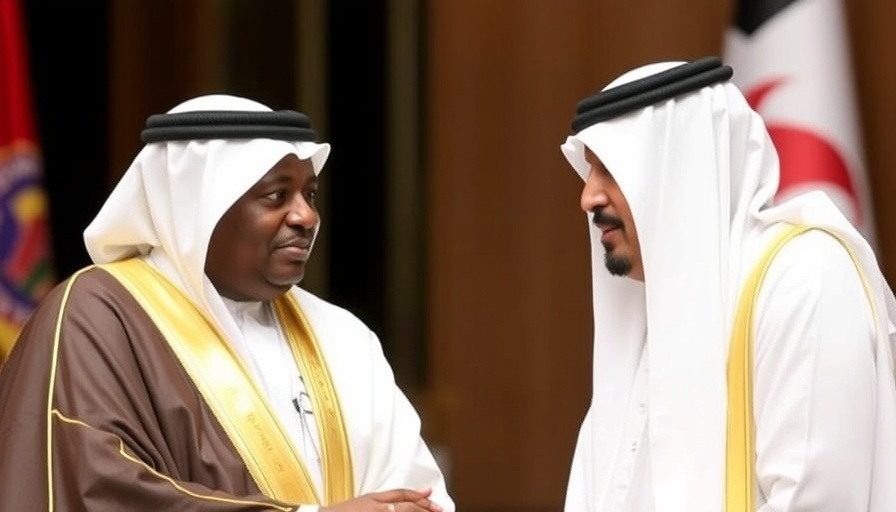
Qatar's Diplomatic Role: A Shift in African Conflict Resolution
The recent mediation by Qatar's Emir, Sheikh Tamim bin Hamad Al Thani, in the talks between Rwandan President Paul Kagame and Democratic Republic of Congo (DRC) President Felix Tshisekedi marks a significant moment in African diplomacy. As both leaders gathered in Doha, their call for an "immediate and unconditional" ceasefire highlights the urgent need to address escalating violence in eastern DRC, driven by the advancing M23 insurgents. This meeting, described as informal, is recognized for its potential to lay down foundational elements for a lasting peace amidst a conflict rooted in historical grievances and resource competition.
Understanding the M23 Insurgency: History and Current Impacts
The M23 rebel group’s resurgence can be traced back to deep-seated issues that emerged from Rwanda's 1994 genocide and the tumultuous aftermath that has left eastern DRC plagued with violence. The rebels control significant territories, raising concerns not only for national security but also for humanitarian crises affecting millions. More than 7 million people are displaced due to the violence, making it imperative for regional stabilization efforts to take center stage in global discussions on security in Africa. This backdrop makes the Doha meeting of critical importance for business leaders and policymakers keen on understanding the ramifications of such conflicts on the African economy and foreign investments.
Qatar's Emergence as a Peace Broker in Africa
Qatar's mediation role reflects its strategic ambitions on the African continent, especially as it seeks to enhance diplomatic ties with key nations. The emirate's involvement in various international conflicts, including recent negotiations between Israel and Hamas, showcases its growing influence. For Kagame, whose country's interests are closely tied to the outcomes of these negotiations, refusing Qatar's invitation would have had significant diplomatic repercussions. The stakes involved further underscore the geopolitical complexities of the region and highlight Africa's evolving role in global diplomacy.
Challenges Ahead: Can Peace Talks Yield Real Results?
Despite the quest for peace, skepticism remains regarding whether the ceasefire call will suffice to halt the M23’s momentum. With accusations of Rwandan support for these rebels complicating relations, Tshisekedi's administration faces immense pressure to act decisively. Analysts like Bob Kabamba from the University of Liege provide a critical lens, noting that ongoing escalations underscore Tshisekedi’s need for substantial solutions before the conflict deteriorates further. His administration's ability to navigate these treacherous waters will be essential not only for regional stability but also for economic growth, as continued unrest risks alienating investors essential for rebuilding efforts.
Conclusion: The Importance of Regional Stability in Africa's Economic Future
As business leaders, policymakers, and researchers observe the developments from Doha, it is imperative to recognize the interconnectedness of peace and economic growth. A stable DRC is not only vital for its citizens but also for the broader African economic landscape that heavily relies on the region’s mineral wealth. The call for dialogue and cooperation serves as a reminder that solutions to Africa's conflicts often require collective efforts. Stakeholders should keep a close eye on the outcomes of these discussions in Doha, as they will likely bear significant implications for investment trends and geopolitical dynamics in Africa.
**Join the dialogue on Africa's geopolitical landscape by engaging with local leaders and international stakeholders to contribute to peace in the region. Your insights and actions could lead to impactful changes.**
 Add Row
Add Row  Add
Add 


 Add Row
Add Row  Add
Add 

Write A Comment